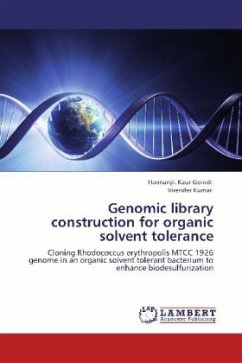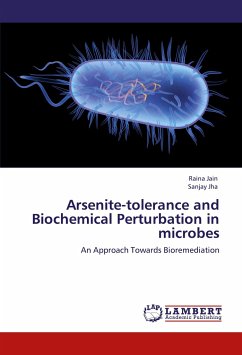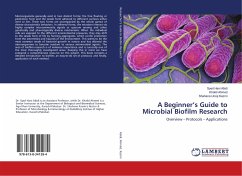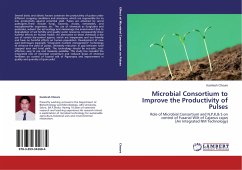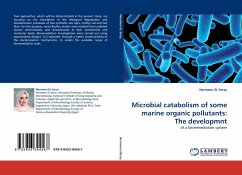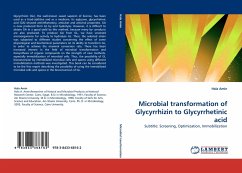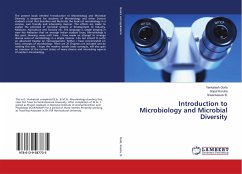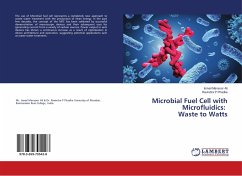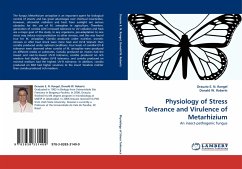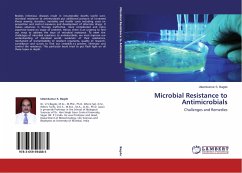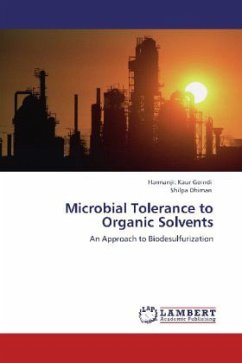
Microbial Tolerance to Organic Solvents
An Approach to Biodesulfurization
Versandkostenfrei!
Versandfertig in 6-10 Tagen
32,99 €
inkl. MwSt.

PAYBACK Punkte
16 °P sammeln!
The essence of cleaner and greener fuel involves the removal of organosulfur compounds from fossil fuels so as to lower the sulfur oxide emissions upon their combustion. The situation becomes more serious globally as the depleting fossil fuel reservoirs have increased sulfur content with recalcitrant compounds that resist the hydrodesulfurization process used in the refineries. Alternative desulfurization strategies have gained impetus, biodesulfurization (BDS) being one of them. However, the use of microbes for BDS is challenging mainly because of the numerous hydrocarbons present in fuels th...
The essence of cleaner and greener fuel involves the removal of organosulfur compounds from fossil fuels so as to lower the sulfur oxide emissions upon their combustion. The situation becomes more serious globally as the depleting fossil fuel reservoirs have increased sulfur content with recalcitrant compounds that resist the hydrodesulfurization process used in the refineries. Alternative desulfurization strategies have gained impetus, biodesulfurization (BDS) being one of them. However, the use of microbes for BDS is challenging mainly because of the numerous hydrocarbons present in fuels that are toxic to microbes. Selective use of organic solvent tolerant bacteria can be useful for enhancing biodesulfurization. This book encompasses the isolation of such solvent tolerant bacteria that can be used potentially for the BDS process.



